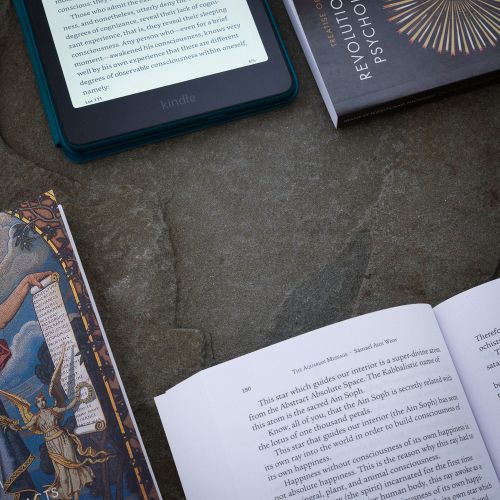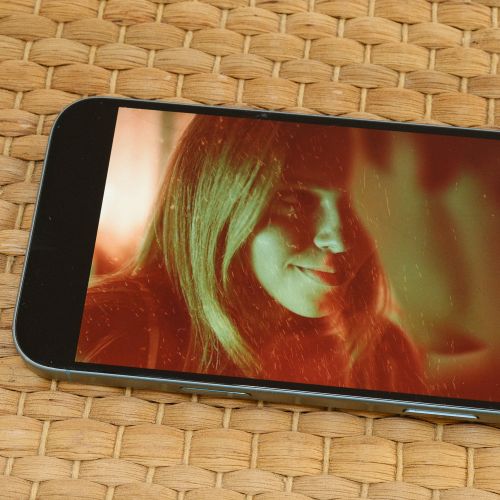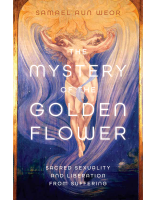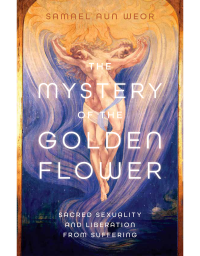In sublime and ineffable ecstasy, Goethe proclaimed his Divine Mother Kundalini to be the authentic liberator.
“Raise your eyes towards the gaze of the savior,
All you repentant, tender souls,
So as to be transformed, full of gratitude
for a fortunate destiny.
That each purified sense be ready for its service.
Virgin, Mother, Queen, Goddess,
Be propitious!”
Goethe knew well that without the aid of Devi Kundalini, the igneous serpent of our magic powers, the elimination of the animal ego would be more than impossible.
Waldemar says:
“The better known love affairs of Goethe — with the exception of that with Christiane Vulpius — were all more erotic than sexual in character. It can be justifiably maintained that, in his relations with women, Goethe primarily experienced the sensations and enjoyments of his imagination [fantasy]. He always tried to derive from woman the sentiment of enthusiastic inspiration. In other words, he sought stimulation to kindle the flames of his mind and heart, without providing gratification for his physical urges. The passionate infatuation which bound him to Charlotte Buff, Lili, or Friederike Brion, seen in the light of the situation surrounding each, could not possibly possess a sexual character...
“Many histories of literature have examined the nature of the relationship Goethe and Frau von Stein. What emerges appears to indicate an ‘ideal’ liason. Since it is generally known that Goethe did not remain continent during his stay in Italy, and soon after his return home began a love affair with Christiane Vulpius (who refused him nothing), it can well be concluded that he had previously led a rather chaste life at home. There is no doubt that Goethe’s love was at its most passionate whenever he happened to be separated from the object of his yearning. His love only assumed shape and depth after he had opportunity for reflection and meditation. When he writes to Frau von Stein, he is really close to her — closer than he every was in her presence.
“As Herman Grimm so rightly says: ‘His relationship with Lotte only becomes understandable if we transfer all his passion into those hours when he was not together with her.” —Charles Waldemar, The Mystery of Sex
It would not be irrelevant to emphasize in this chapter the idea that Goethe loathed the coitus of fornicators: omni animal post coitum triste (“all animals are sad after ejaculation”):
“So you deprive me of my love,
Unfortunate joys of the flesh,
Take it back, this lust,
The wish of so many poems — take it back!
Take it, and return the better love
To this breast, this barren breast of mine.”
—Lessing, Enjoyment
Let the poet now speak! Let him say what he feels! In truth and in poetry he writes:
“I rarely came to see her, but our correspondence [referring to Friederike] was all the more lively. She knew how to describe... her moods in a most graphic fashion, and I used to recall her merits with joy and passion. Her absence gave me a sense of real freedom, and my affection grew and blossomed through this conversation par distance. In such moments, I was able to blind myself to the future.” —Goethe, Fiction and Truth
“In his poem ‘Bliss of Distance,’ he gives clear expression to his inclination for metaphysical love:
“From the sweetheart’s eyes, oh youth,
Drink the holy happiness...
Nowhere can I quite forget her,
But I dine without vexation,
And my mind is gay and free.
By and by infatuation
Changes into adoration,
Desire into reverie.”
Waldemar commented, saying:
“The poet was not interested, and this must here be stressed, in Frau von Stein as she actually was, but as he conceived her [through the pressure of his creative heart]. He projected his metaphysical yearning for the ‘eternal feminine’ on to Charlotte so that he saw her as the ‘mother, the lover, in short, the universal principle.’ To express it more poignantly, she was for him the very personification of Eve. Already in 1775 he wrote: ‘It would be a grandiose spectacle to observe how the world is reflected in this soul. She sees the world as it is, and yet through the medium of love...’”
“While Goethe could ‘invent in his imagination’ the girl with whom he had fallen in love (as long as it was possible to create an ideal being which corresponded to the flight of his day-dreams and visions) he remained faithful and devoted. But when this process was inhibited through his own fault or somebody else’s fault, he withdrew. Every time he abandoned himself to erotic-poetical feelings until the moment when the affair threatened to become ‘serious.’ Then he took refuge in the solemnity of distance.” —Charles Waldemar, The Mystery of Sex
Allow us the freedom of dissension with Goethe on this thorny point in his doctrine.
To love someone from a distance, promise much and afterwards forget, to us seems very cruel; at the bottom of this lies moral deception...
Instead of stabbing adoring hearts, it is better to practice Sahaja Maithuna with a priestess wife, love her, and remain faithful to her throughout life.
This man comprehended the transcendental aspect of sex, but missed the most subtle point; this is why he did not achieve the realization of the Innermost Self...
Goethe, worshipping his Divine Mother Kundalini, filled with ecstasy, exclaims:
“Virgin, you immaculate,
Mother, worthy of all honors,
Queen elected for us mortals,
You are one with the gods.” —Goethe, Faust
Eager to die within himself in the here and now during chemical coitus, wishing to destroy Mephistopheles, he exclaims:
“Arrows, pierce me,
Lances, hit me,
Cudgels, smash me,
Lightnings, strike me,
That all the valueless
Be obliterated
And love’s eternal star
Glitter brightly.”
Without question this inspired bard possessed marvelous intuition; if he had rediscovered himself exclusively in one woman, if he had found in her the secret path, if he had worked with her throughout his life in the Ninth Sphere, obviously he would have attained final liberation.
In his Faust, he expressed his belief with great precision in the possibility of the elevation of the liberated Golden Embryo to a super-soul (the superior manas of Theosophy). When this happens, the aforementioned theosophical principle penetrates us and, fusing with the Golden Embryo, passes through extraordinary inner transformations; it is then said of us that we are humans with soul. At this stage, we reach mastery, adepthood, and become active members of the esoteric brotherhood. This does not mean perfection in the fullest sense of the word. The divine and human know well how difficult it is to reach perfection in mastery.
While on this subject it is imperative to know that such perfection can only result after fulfilling profound esoteric tasks in the worlds of the Moon, Mercury, Venus, Sun, Mars, Jupiter, Saturn, Uranus, and Neptune.
At any rate, the incarnation of the human soul (third aspect of the Hindustani Trimurti known as Atman-Buddhi-Manas) within us and its blending with the Golden Embryo is an extraordinary cosmic event that radically transforms us.
The incarnation of Superior Manas within us does not imply the entrance of Atman and Buddhic principles into our organism. This last matter concerns the subsequent work about which we shall speak in depth in our future book entitled The Three Mountains.
After this small digression from the subject essential to the matter at hand, we continue with the following tale:
Long ago, something unusual and unwonted happened to me along the path of life. One night while involved in very interesting esoteric work out of my physical body with the eidolon, I approached the gigantic city of London.
I clearly remember that when I passed a certain place in that metropolis, I was able to perceive with mystical amazement the radiant yellow aura of a certain intelligent young man standing on a corner.
Entering a very elegant cafe in the metropolis and sitting at a table, I remarked on the aforementioned event to a rather aged person who was slowly savoring the delicious contents of a cup of some Arabic drink.
Suddenly something unexpected happened, a person approached and sat next to us; upon careful observation, I was able to verify with great astonishment that it was the same youth with the shining yellow aura, who moments before had surprised me. After the usual introductions, I became aware that this person was none other than he who in life had written Faust; I refer to Goethe.
In the astral world, wonderful events happen, extraordinary marvels. It is not unusual to run into disincarnated people there, personages like Victor Hugo, Plato, Socrates, Danton, Moliere, etc.
And so, clothed in the eidolon, I wanted to talk with Goethe outside of London, by the shore of the vast sea. I invited him, and obviously he would not decline such an invitation.
Talking together on the coast of that great island Britain where the English capital is situated, we saw some sanguine colored mental waves floating towards us upon the stormy ocean. I explained to that young man with the radiant aura that those mental forms were coming from a certain lady in Latin America who desired me sexually. This caused us a certain trace of sadness.
The stars glittered in infinite space, and the furious waves raged terrifyingly, incessantly pounding the sandy shore.
Talking on the steep cliffs by the sea, he and I exchanged ideas. I resolved to ask the following question, point blank, as we say here in the physical world: “Do you have a new physical body now?” The reply was affirmative. “Is your present vehicle masculine or feminine?”
He then answered, “My present body is feminine.”
“In which country are you incarnated?”
“In Holland.”
“Do you love anyone?”
“Yes,” he answered, “I love a Dutch prince, and I am thinking of marrying him on a certain date.” (The reader must excuse us for not mentioning the date).
“I thought that your love would be strictly universal,” I said, “love of the rocks, the mountains, the rivers, the seas, the bird which flies and the fish that glides through deep waters.”
“Is not human love a spark of divine love?” This kind of questioning reply from the one who in his past reincarnation was called Goethe certainly left me overwhelmed, perplexed, amazed. Undoubtedly, the distinguished poet had told me something irrefutable, incontrovertible, and correct.







